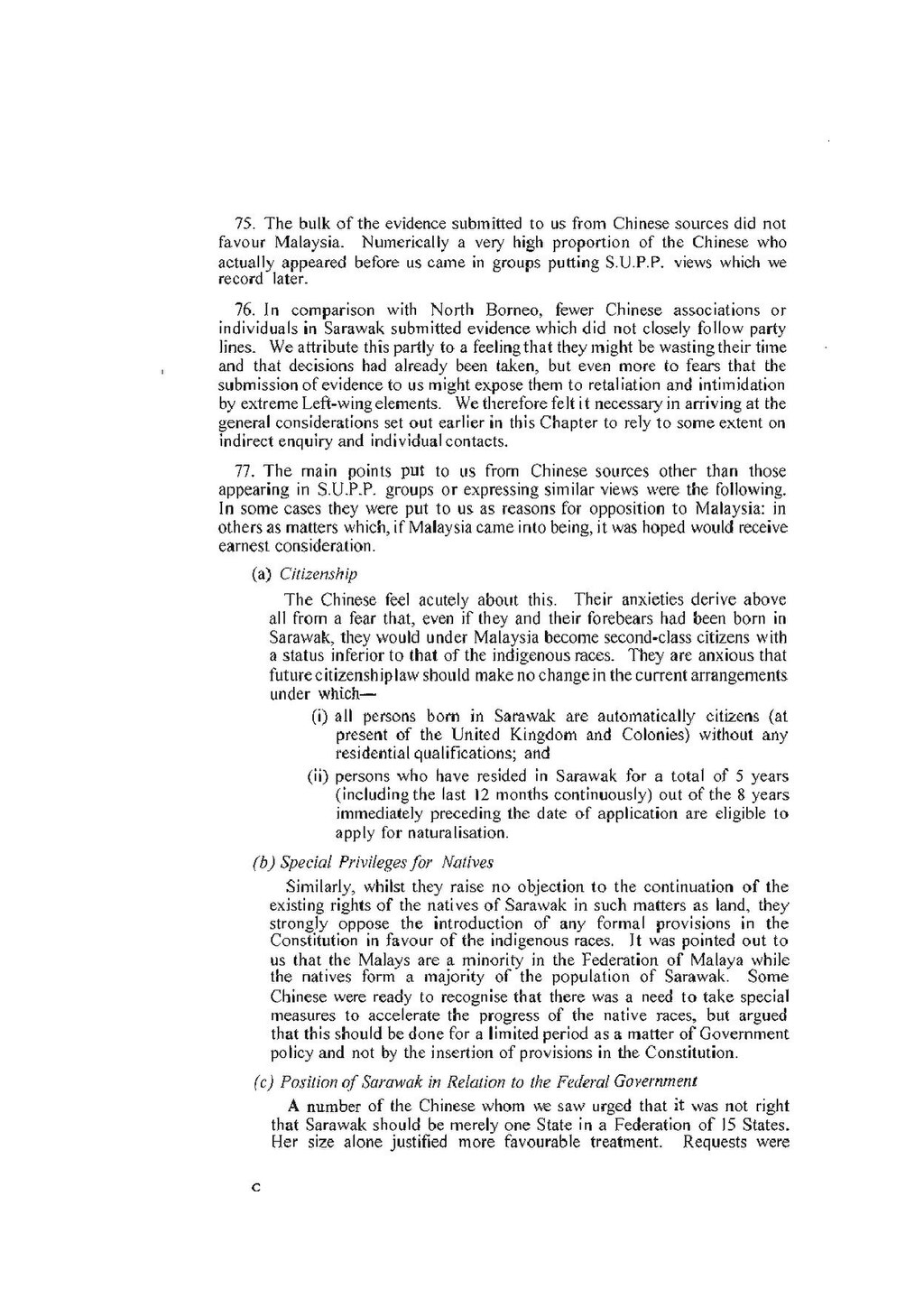75. The bulk of the evidence submitted to us from Chinese sources did not favour Malaysia. Numerically a very high proportion of the Chinese who actually appeared before us came in groups putting S.U.P.P. views which we record later.
76. In comparison with North Borneo, fewer Chinese associations or
individuals in Sarawak submitted evidence which did not closely follow party lines. We attribute this partly to a feeling that they might be wasting their time and that decisions had already been taken, but even more to fears that the submission of evidence to us might expose them to retaliation and intimidation by extreme Left-wing elements. We therefore felt it necessary in arriving at the general considerations set out earlier in this Chapter to rely to some extent on indirect enquiry and individual contacts.
77. The main points put to us from Chinese sources other than those
appearing in S.U.P.P. groups or expressing similar views were the following. In some cases they were put to us as reasons for opposition to Malaysia: in others as matters which, if Malaysia came into being, it was hoped would receive earnest consideration.
- (a) Citizenship
The Chinese feel acutely about this. Their anxieties derive above all from fear that, even if they and their forebears had been born in Sarawak, they would under Malaysia become second-class citizens with a status inferior to that of the indigenous races. They are anxious that future citizenship law should make no change in the current arrangements under which—
(i) all persons born in Sarawak are automatically citizens (at present of the United Kingdom and Colonies) without any residential qualifications; and
(ii) persons who have resided in Sarawak for a total of 5 years (including the last 12 months continuously) out of the & years immediately preceding the date of application are eligible to apply for naturalisation.
- (b) Special Privileges for Natives
Similarly, whilst they raise no objection to the continuation of the existing rights of the natives of Sarawak in such matters as land, they strongly oppose the introduction of any formal provisions in the Constitution in favour of the indigenous races. It was pointed out to us that the Malays are a minority in the Federation of Malaya while the natives form a majority of the population of Sarawak. Some Chinese were ready to recognise that there was a need to take special measures to accelerate the progress of the native races, but argued that this should be done for a limited period as a matter of Government policy and not by the insertion of provisions in the Constitution.
- (c) Position of Sarawak in Relation to the Federal Government
A number of the Chinese whom we saw urged that it was not right that Sarawak should be merely one State in a Federation of 15 States. Her size alone justified more favourable treatment. Requests were
